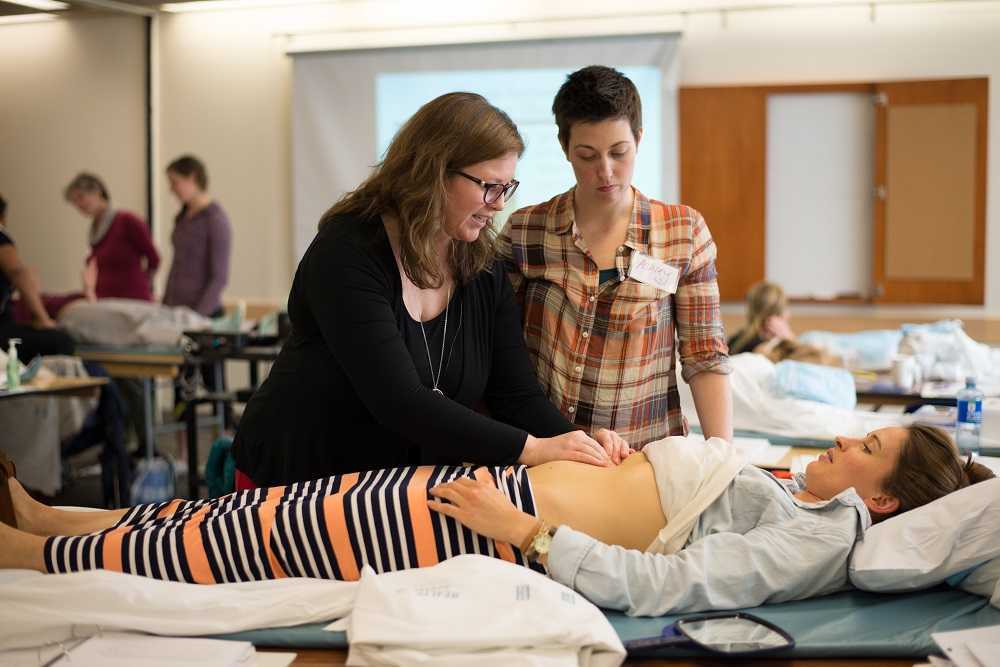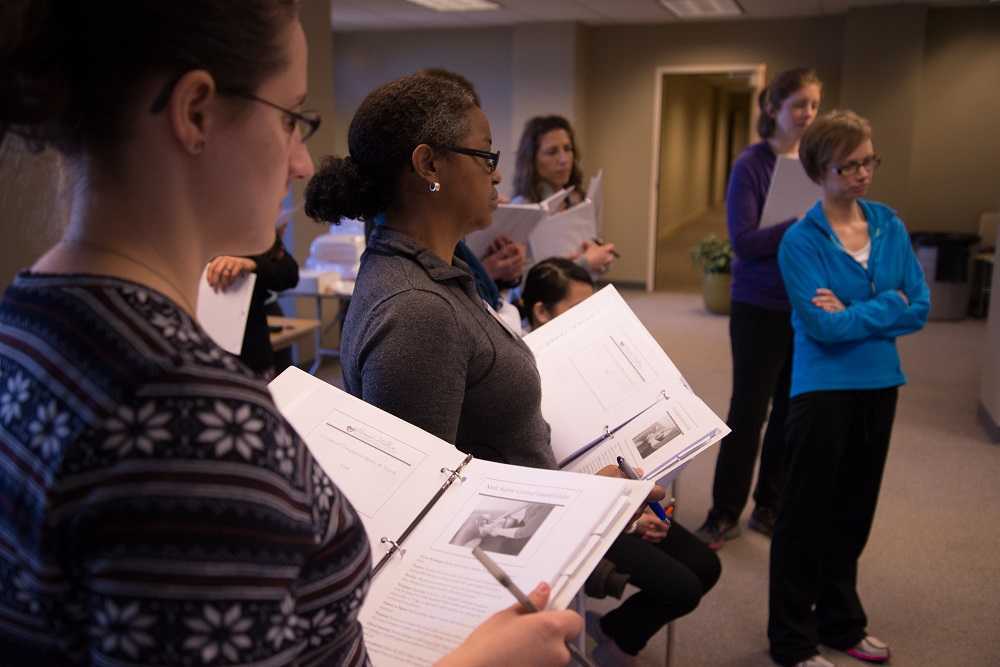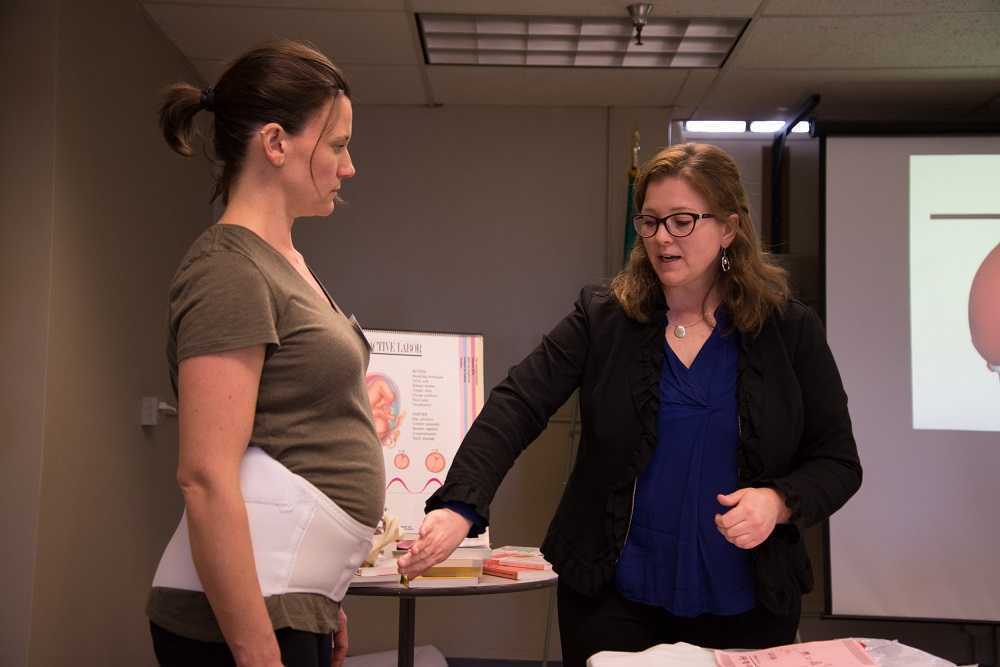The client who is postpartum may be one of the most overlooked clients in health care. Knowing the specific rehabilitation needs to help with common problems and to prevent future problems is the goal of this 2-day, beginner level course. For the orthopedic-based practitioner, this course will solidify awareness of common orthopedic needs for the postpartum client. For the non-orthopedic practitioner, this course will provide a foundation for working with the client experiencing common postpartum-related musculoskeletal conditions. The course take place live on a remote Zoom meeting, and will open with brief case scenarios that highlight the difference between examination/evaluation in the postpartum vs. non-postpartum population. There will also be prerecorded content which must be viewed prior to participating in the meeting. Labor and birth, birth complication and injuries, postpartum stages and concerns, and Cesarean birth all set the stage for the postpartum client and will be reviewed. Understanding typical hormonal and systemic recovery and return to “normal” during postpartum will be provided, including early postpartum changes in the endocrine, metabolic, cardiovascular, pulmonary, immune, neurologic/sensory, integumentary, gastrointestinal, urinary/renal, reproductive, and musculoskeletal systems.
This course will cover examination considerations and modifications specific to postpartum, as well as specific questions to ask during history taking and methods for identifying red flags in postpartum. More comfortable positions during the examination/treatment and common posture/gait/balance changes during postpartum are covered. The participant at this course will understand necessary biomechanics training for daily activities, child care, and breastfeeding. As an expansion from the pregnancy rehabilitation course, participants will be taken through progression in diastasis rectus abdominis (DRA) assessment and rehabilitation, including DRA exercises in lecture and lab. Additionally, addressing abdominal wall lengthening and Cesarean scars will be discussed and practiced in lab.
Overview of pelvic floor dysfunction in the postpartum after vaginal birth with external examination techniques will be expanded from the techniques taught during the pregnancy course. Basic bladder and bowel instructions/education for the postpartum client will be provided, along with guidance on when to refer to a pelvic physical therapist. As an advancement from the pregnancy rehabilitation course, progression in assessment and cueing of pelvic floor, transverse abdominis, and multifidus (deep core) muscle activity will be covered in lecture and lab. Lecture and lab will also address assessing and treating abdominal wall trigger points. Providing instruction and treatment in functional use of abdominal muscles with motor control and functional activities and progression of DRA/abdominal wall rehabilitation exercises will be incorporated into lecture and lab activities.
Basic orthopedic focus on common thoracic and cervical/head complaints in the postpartum will be explored during lecture. This course will also briefly review breathing techniques covered during the pregnancy course. Additionally, discussion and lab practice of lumbar and pelvic girdle examination and treatment techniques in the postpartum will expand on topics covered during the pregnancy rehabilitation course. Review and lab practice will be provided for basic examination and treatment of lower and upper extremity birth and labor injuries.
Psychosocial considerations during postpartum will be explored: the “typical” postpartum patient; postpartum depression, anxiety, and psychosis; postpartum recovery after bedrest; collision of reality and expectations; and maternity leave and return to work decisions. Postpartum exercise, fitness, and wellness will ponder the topics of body image and return to fitness and starting exercise in the postpartum. The course concludes with discussion of marketing and billing needs for providing care for the postpartum population.
Audience:
This continuing education seminar is targeted to physical therapists, occupational therapists, physical therapist assistants, occupational therapist assistants, registered nurses, nurse midwives, and other rehabilitation professionals. Content is not intended for use outside the scope of the learner's license or regulation. Physical therapy continuing education courses should not be taken by individuals who are not licensed or otherwise regulated, except, as they are involved in a specific plan of care.
Prerequisites:
All pre-recorded lectures in Teachable for this course must be watched before the Live Component of the course. See the Schedule tab for the current list of pre-recorded videos
Are you interested in expanding your practice to treat prenatal patients? Herman & Wallace has put together a Pregnancy and Your Pelvic Floor marketing presentation to help you underscore the importance of prenatal physical therapy.
References
Gutke, A., Ostgaard, H. C., & Oberg, B. (2006) Pelvic girdle pain and lumbar pain in pregnancy: a cohort study of the consequences in terms of health and functioning. Spine, 31(5), E149-E155.
Ostgaard, H. C., Anderson, G. B. J., & Karlson, K. (1991). Prevalence of back pain in pregnancy: A review. Spine, 16(5), 549-552.






